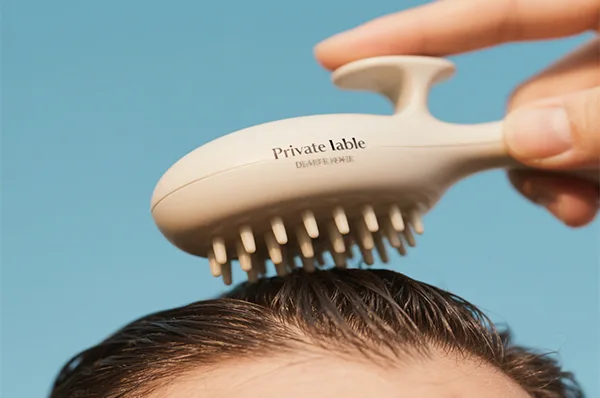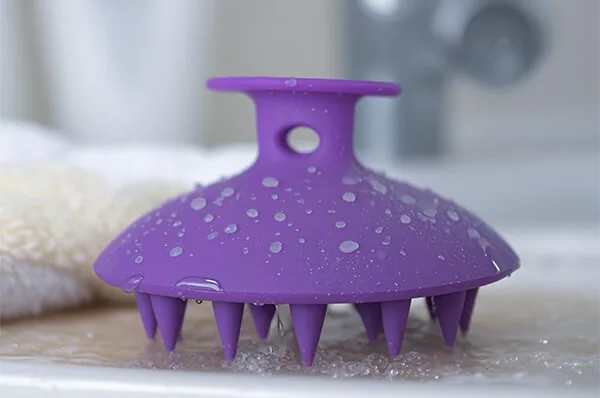- Have any questions?
- +86 19574832024
- admin@beaut-lohas.com
When it comes to choosing a bath brush, one of the crucial factors that often gets overlooked is the bristle density. The bristle density of a bath brush can significantly impact its performance, the user experience, and the overall effectiveness in achieving a clean and rejuvenated body during bathing. So, what exactly is the ideal bristle density for a bath brush?
To begin with, we need to understand the functions that a bath brush is supposed to fulfill. Primarily, it is used for exfoliating the skin, removing dead skin cells, and distributing soap or body wash evenly across the body. Additionally, it can also provide a gentle massaging effect that helps in improving blood circulation. The bristle density plays a key role in each of these aspects.
A lower bristle density, where the bristles are spaced relatively far apart, has its own set of advantages. For those with sensitive skin, a bath brush with a lower bristle density is often a better choice. The fewer bristles mean less friction and a gentler touch on the skin. This reduces the risk of irritating or scratching the skin, which can be a common issue with overly dense brushes. It is also ideal for people who are new to using bath brushes or those who prefer a very light exfoliation. For example, someone with a delicate skin condition like eczema might find that a bath brush with sparse bristles allows them to enjoy the benefits of exfoliation without exacerbating their skin issues.
On the other hand, a higher bristle density offers more intense exfoliation. When the bristles are packed closely together, they are able to cover a larger surface area of the skin simultaneously. This means that more dead skin cells can be removed in a single pass, leaving the skin feeling smoother and looking more radiant. For individuals who have thicker or oilier skin, a bath brush with a higher bristle density can be highly effective. It can penetrate deeper into the pores to dislodge dirt and debris, helping to keep the skin clean and clear. Athletes or those who engage in a lot of physical activities and tend to accumulate more sweat and grime on their bodies might also prefer a denser bristle bath brush to ensure a thorough cleanse.
However, there are also some drawbacks to a very high bristle density. If the bristles are too densely packed, it can be difficult to rinse the brush properly after use. Soap and dead skin cells can get trapped between the bristles, creating a breeding ground for bacteria if not cleaned thoroughly. Moreover, an overly dense brush can be too harsh on the skin, especially if used with excessive pressure, potentially leading to redness, abrasions, or even minor cuts.
In general, an ideal bristle density lies somewhere in the middle. A moderate bristle density allows for effective exfoliation while still being gentle on the skin. It provides enough coverage to remove dead skin cells and distribute soap evenly, but not so much that it becomes a challenge to clean or causes discomfort. For most people, a bath brush with bristles that are neither too sparse nor too crowded together will offer the best balance.
The material of the bristles also interacts with the bristle density. For instance, if the bristles are made of a soft synthetic material like nylon, a slightly higher density might be tolerable as the softness of the material mitigates the risk of skin irritation. In contrast, natural bristles like those from boar hair might require a more carefully considered density due to their varying textures and stiffness.
Another aspect to consider is the size of the bath brush. A larger brush might be able to accommodate a higher bristle density without feeling overly harsh, as the pressure is distributed over a bigger surface area. Conversely, a smaller brush with a high bristle density might be too intense for use on certain areas of the body.
In conclusion, there is no one-size-fits-all answer to the ideal bristle density for a bath brush. It depends on various factors including skin type, personal preference for exfoliation intensity, and the materials used. By taking these factors into account, individuals can select a bath brush with the right bristle density that will enhance their bathing experience, leaving their skin clean, healthy, and glowing. Experimenting with different bristle densities can also help in finding that perfect balance that suits one’s unique needs. Whether you’re aiming for a gentle daily exfoliation or a more intense weekly skin renewal session, the right bristle density on your bath brush can make all the difference.




